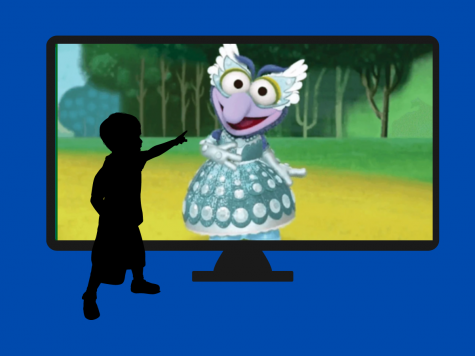Generalization of YA books discredits benefits of teen reading
Young adult, or YA, books have engrossed a new generation of teen readers. While the older ones seem to involve stories relating to wizards, vampires or Greek gods, new novels offer complex stories that stray away from simple storylines.
“YA books are books that are intended for young adult audiences,” English teacher Breanne Makovec said. “I feel like they’re books that take on themes and topics that the authors feel would be relevant to that particular audience.”
Many YA book series like “Percy Jackson” and “Harry Potter” feature heroes fighting their way not only through dangerous prophecies and evil villains but also teenage issues like love and friendship. However, these books have come under scrutiny for their perceived as basic storylines.
“Some YA books can be basic with a beginning, middle and end,” sophomore Katie Koblas said. “They range on complexity. Some are an easy read and some are harder.”
The idea of what a complex book is ranges based on grade level and academic level. A common way to track this is the Lexile Measure, a way to determine what grade level a book is or what grade level a student should be reading through the difficulty of words and plot of the book. For example, “Harry Potter and the Sorcerer’s Stone,” a YA book which, according to the LA Times, “Burbank Public Library offering digital copies of first ‘Harry Potter’ novel to recognize the book’s 20th anniversary,” has sold more than 120 million copies, has a Lexile score that correlates to a fifth grade level, leading to a perception that these books are not advanced.
“I think YA gets a bad reputation because everyone thinks they are about simple topics,” Library Media Specialist Kim Miklusak said. “If you think about the really popular books right now like ‘The Hate You Give,’ it talks about race and police relations.”
The concern over teens reading YA books, regardless of a detailed message weaved into a basic storyline, is that these books won’t give teens the intended benefits of reading. According to Makovec, reading has many advantages such as increased academic performance, vocabulary, knowledge of story, persuasion and critical thinking. The problem occurs when people think these skills can only be obtained through reading more advanced texts. If books are like food, one might think they can only get nutritious benefits if they eat the right kinds of foods.
Currently, though, teen reading has hit a low. According to the American Psychological Association, “Teens Today Spend More Time on Digital Media, Less Time Reading,” less than 20 percent of teens in the US have reported reading a book, magazine, or newspaper daily for pleasure. The spark in reading that was created by YA books seems to have gone down, and the potential solution of forcing teens to read complex books that don’t interest them may not be the right fix.
“I was certainly one of those people that said you had to read all the classics,” Miklusak said. “But the more I started working with independent reading and getting the book that really matched the person into their hands, the more I saw people coming back to read for more.”
Not only do YA books catch an audience, but reading fiction also has benefits similar to reading the classics. According to Psychology Today, “Reading Fiction Improves Brain Connectivity and Function,” a study conducted by Emory University showed that reading novels improves a person’s ability to empathize and increased visualization and imagination. This boosts the intended purpose of many modern YA books which is to increase awareness of social or mental issues through a fictitious story.
“YA books are beneficial because they get younger adults to start reading, and there’s a variety for everyone to choose from that are geared towards us,” Kolbas said.
The concern over YA books doesn’t come without any weight to it. According to Miklusak, she wouldn’t want someone to read “Diary of a Wimpy Kid,” but she wouldn’t tell that person not to read it at all. YA books are not all basic novels about funny-sounding spells, many take on current issues that can help teens grow. “Long way down” by Jason Reynolds is a novel that uses poetry to reflect on gun violence and “I’ll give you the sun” by Jandy Nelson takes on themes of grief, self-harm and love.
“I think any type of reading is good, the more the better,” Makovec said. “As kids read more and become more competent readers, they will seek out things that challenge them.”








